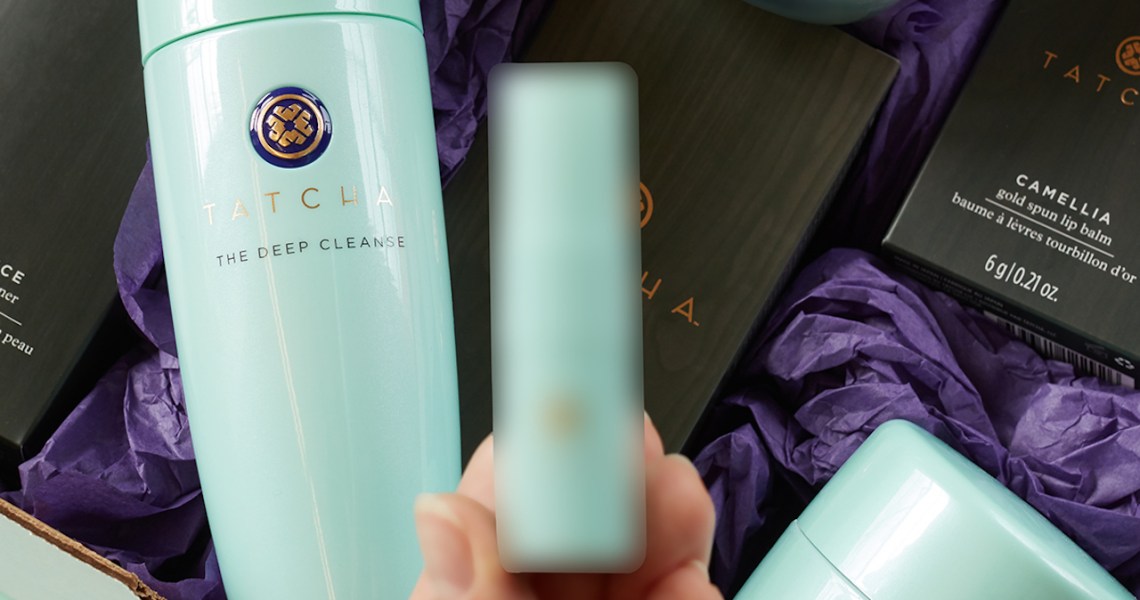Tatcha is banking on mystery marketing tactics for its newest launch.
In partnership with its exclusive U.S. retailer, Sephora, the Japanese-inspired beauty brand started promoting an unnamed skin-care product, sold under the title of Mystery Treasure, on Sephora.com on Wednesday. Sephora.com Beauty Insiders (which has around 25 million members) who spend $35 or more will be able to receive a deluxe sample of the mystery product by using the code “Tatcha” on the retailer’s site. The Mystery Treasure’s retail value is $48, and the announcement of the actual product will be on Friday. It is being teased as the brand’s “Water Cream’s new bff.”
“We already have the No. 1 product in the product’s [sub] category at Sephora, so we see this launch as a sister. When we were thinking about bringing some excitement to how we would bring this product to life, Sephora was open to trying something new and unusual,” said Vicky Tsai, Tatcha’s founder and chief treasure hunter.
“Tatcha is a key brand in our Clean Skincare portfolio that is beloved by the Sephora client,” said Priya Venkatesh, Sephora senior vice president of merchandising for skin and hair. “Many of Tatcha’s products are cult favorites, so we are excited to introduce their new offering via a different launch format.”
To spur interest, Sephora launched a Mystery Treasure product page this week, followed by an Instagram Story of the promotion to its 17.5 million followers. Later this week, Sephora will exclusively reveal the product on its Instagram page.
In some ways, Tatcha’s mystery product launch borrows from the annual Japanese New Year custom of Fukubukuro, which are grab bags consisting of mystery products. Though not as prevalent in the U.S., Tatcha has participated in this tradition every January since 2017 on Tatcha.com. Tsai would not disclose traffic to Tatcha.com driven by Fukubukuro, but she said it is typically the biggest moment of the year on the brand’s site. However, this is the first time that Tatcha is using the mystery approach for a new product versus featuring a product in its existing assortment. It is also the first time the brand is bringing the concept to its wholesale partners.
Sephora, too, has offered mystery bags since last fall, through its Sephora Favorites program, but customers know the category of product they are getting, such as lip, eye or cheek. For instance, its Mystery Lip kit, which contains three deluxe lip items, one of which is a surprise, is currently available to purchase on Sephora.com for $16.
Ad position: web_incontent_pos1
“It’s taking a digitally native strategy and leveraging that to create buzz in a more traditional way via a retailer,” said Larissa Jensen, executive director and beauty industry analyst at The NPD Group. “If you are a fan of Tatcha, it plays into the idea that you can get [the latest product ] in your hands first.” Jensen compared Tatcha’s latest approach with Sephora to how Glossier or Jeffree Star teases new products in advance of shoppers actually being able to purchase them.
Though mystery beauty products or bags share inherent risk for customers if they actually do not like or want the products, much like subscription boxes, marketing the brand piece front-and-center is crucial for success, said Liz Cadman, founder of My Subscription Addiction, which saw 2.8 million visitors to its site in April. Furthermore, many times these mystery items are non-returnable.
“Mystery boxes are rare, and when they work, it is because shoppers know and love the brand,” she said. “Too Faced does a yearly Cyber Monday mystery box that our readers are obsessed with. It works because people love Too Faced, but also because it’s a $42 cost for a $123 value. If the brand is somewhat outside of what you would usually spend, mystery boxes can create a lot of noise.”
The notion of price is interesting here, as Tatcha’s products range from $12 for an eye mask to $524 for its Ritual Kiri collection. Additionally, skin-care brands provide more opportunity to satisfy a larger swath of customers, said Cadman, since consumers don’t have to worry about if a foundation doesn’t match or if its a lip color they don’t like.
Tatcha only debuts 3 to 4 products a year, and creating buzz is crucial to its launch strategy, especially with third-party partners. When Tatcha brought its Kissu Lip Mask to market in July 2018, it did so with QVC’s first-ever “Black Friday in July” activation on Facebook Live. The product, which QVC had the exclusive to first, was sold out globally in all channels as of September 2018 and remains sold out. Tsai said the product will come back later this year. And in March, Tatcha revealed another exclusive product with QVC, its Ageless Revitalizing Neck Cream, which was culled from Tatcha.com customer requests and meant to build QVC’s neck cream category. In 2018, it was reported by Women’s Wear Daily that the 10-year-old company grew retail sales by 80 percent to $120 million between 2017 and 2018.
Ad position: web_incontent_pos2
“We don’t launch products very often, and that’s different from what is the norm in beauty,” said Tsai. “We aren’t looking around at the competition and trying to be more clever. Each time, we want to try something different that provides a bit of fun and serendipity to our customers.”
Customizing its launch strategies is also for key for Sephora, said Venkatesh. “Beauty clients are very engaged in social, and we know that, to stay relevant, we need to be constantly evolving,” she said. “Sephora is committed to modernizing our means of connecting our clients to our brands, by bringing interesting and relevant content in playful ways.”




